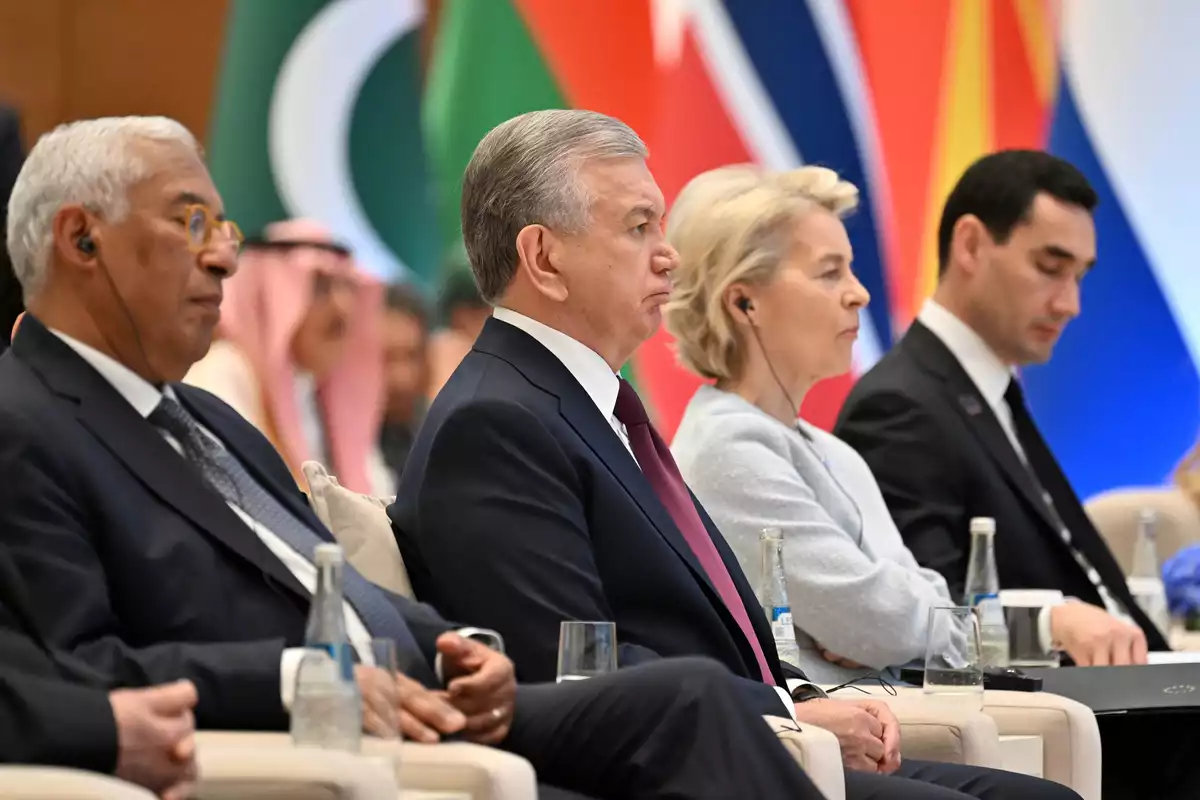
Photo: president.kg
Billed as a potentially transformative event that could supercharge the European Union’s emergence as a major regional player, the inaugural Central Asia-EU summit instead underwhelmed.
The two-day meeting April 3-4 in the Uzbek city of Samarkand produced no major announcements, just a lot of spin, trying to mask a lack of substantive progress with some stylish language, The Caspian Post reports citing Eurasianet.
“I believe our relationship has not yet reached its full potential. Our partnership is a journey, not a destination. This summit marks the start of a new dimension in our relations, and it will not be a one-off,” an EU statement quoted European Council President António Costa as saying.
The main “deliverable” of the meeting, according to an EU press release, is a €12 billion assistance package, providing assistance for expanding trade transit routes, developing the mining sector, addressing water and climate issues and promoting digital connectivity. It is unclear whether this assistance package is intertwined in any way with €10 billion in development aid announced at the Global Gateway Investors Forum in early 2024. In addition, according to the press release, the European Bank for Reconstruction and Development is “working on a project pipeline of approximately €7-8 billion until 2027.” Details about the various assistance projects were scant.
The joint statement issued by Central Asian and EU leaders was mainly a 20-point recitation of aspirations and already established areas of joint interest. There was little in the document that could be seen as advancing specific projects.
“Reaffirming our commitment to deeper cooperation in an evolving global and regional geopolitical landscape, we decided to upgrade relations between the European Union and Central Asia to a strategic partnership,” the statement’s first point proclaimed. It also noted a need to maintain momentum for a Joint Roadmap for Deepening Ties between the EU and Central Asia, adopted in 2023.
Meanwhile, the summit host, Uzbek leader Shavkat Mirziyoyev, was tentative in assessing the gathering.
“I am convinced that our strategic partnership should be filled with concrete decisions, projects and programs,” the EU press release quoted Mirziyoyev as saying. “I would like to emphasize the importance of introducing mechanisms for the practical implementation of our initiatives and agreements.”
Share on social media